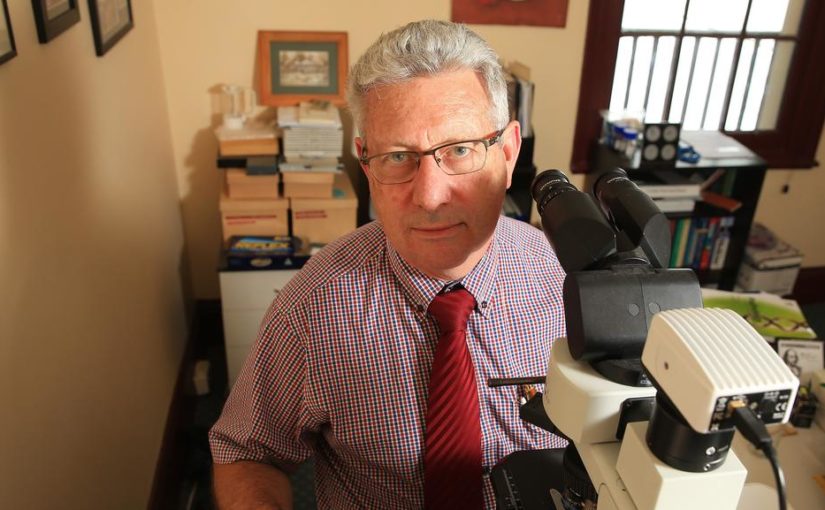Retired pathologist and prostate cancer survivor Dr David Clift went from diagnosing prostate cancers to being the one diagnosed and wants other men to ensure they understand their prostate cancer risk.
Dr Clift is urging men to get up to date with their Prostate Specific Antigen (PSA) blood tests, and now is a great time to catch up as September is Prostate Cancer Awareness Month.
In Australia, nine men die each day from prostate cancer, and data from the Prostate Cancer Foundation of Australia’s (PCFA) STARGATE project shows Dr Clift’s local area of Geelong in Victoria has a prostate cancer mortality rate of 28 per 100,000 men, compared to a national average of 25.
On Dr Clift’s 65th birthday, his GP referred him for a prostate specific antigen (PSA) blood test and his results came back with a higher-than-normal level.
Dr Clift said, “As a pathologist, I am familiar with prostate cancer having diagnosed many cases throughout my career. I was aware I should have had my first PSA test at 50, but like many men I was feeling well, I had no family history of prostate cancer and so it was easy to put it off. I’m very grateful to my GP, who is also a close friend, who told me ‘I’m giving you a PSA test for your birthday’ and what a present that turned out to be!’
The PSA test measures an antigen in the blood which can be an indicator of prostate cancer, although levels can be elevated due to other reasons.
Dr Clift was instructed to have a repeat test three months later and his levels were still high. He was then referred to a urologist for further investigation. An MRI scan showed a mass in his prostate and a biopsy confirmed the tumour was prostate cancer.
“It was a bit of a shock getting a cancer diagnosis. Suddenly I was mortal. I felt well, I had no symptoms, no changes in my urination, it was a completely silent disease process.’’
“Fortunately, that’s the best time to catch it, when you’re not aware the disease is there, and it hasn’t progressed. PSA testing gives men options. I was lucky that the cancer was picked up at a stage when it was likely that surgery would be successful,” Dr Clift said.
Dr Clift had robotic surgery to remove his prostate and recovered well. Eighteen months after his diagnosis, he is feeling good and is back to his hobby of sailing, trying to keep up with his 14-year-old grandson.
Dr Gregory Neerhut, David’s urologist, said: “Some men may be reluctant to get the PSA test, but there is a real benefit in early detection, and for the patient it’s a simple blood test.’’
“With advances in diagnostic techniques, we now have the best tools to know which men need to be referred for biopsy and who can be monitored. Some patients with low-risk prostate cancers can be safely watched, while patients with more significant disease can undergo potentially lifesaving surgery. Where surgery is needed, robotic surgery is now quite widely available and outcomes for patients have improved.”
The data from PCFA’s STARGATE portal is available for anyone to find out prostate cancer data for their local area, using a postcode search.
PCFA CEO, Prof Jeff Dunn AO, said men need to know their risks and get checked:
“Simply knowing your risks and talking to your GP, or calling PCFA for more information, can help save the lives of many men each year.’’
“PCFA’s STARGATE dataset gives men a greater understanding of how men in their area are impacted, and is a vital awareness tool for the community and health professionals.”
Anyone can find out prostate cancer data for any region of Australia at stargate.org.au.
Men and their loved ones who would like information and support with prostate cancer can call PCFA on 1800 22 00 99 to speak with a trained specialist, nurse or visit pcfa.org.au.
Image credit: Geelong Advertiser

